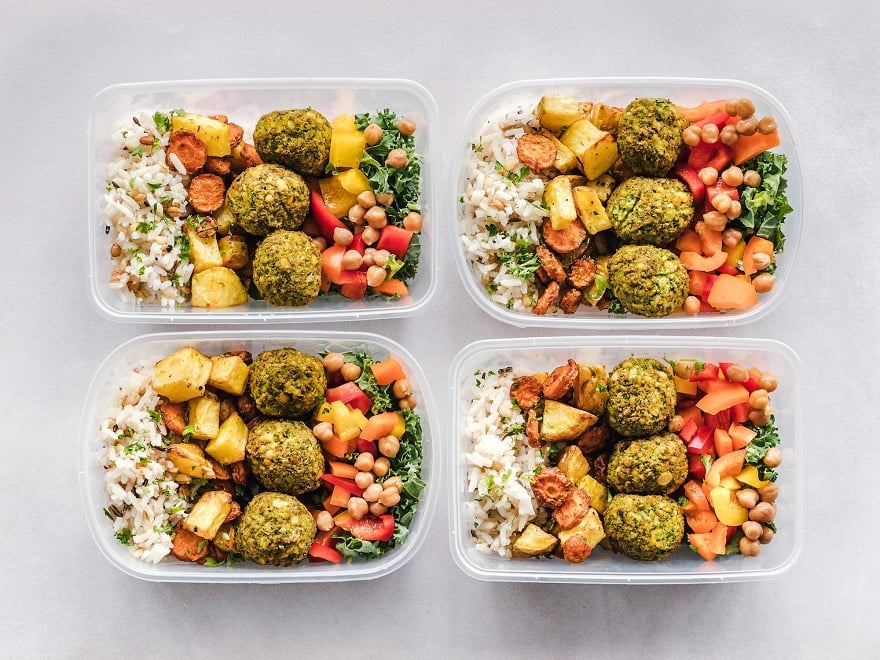Ramadan diet plan for weight loss
It is that time of year in Muslim world when our phones will be full of Ramadan wishes and our dining tables full of several food items, many of them not so healthy
It is that time of the year in the Muslim world when our phones will be full of Ramadan wishes and our dining tables full of several food items. While the holy month is a time of reflection and prayers, our culture also has an undying love for food which is most evident in Ramadan. This means, if you want to stay healthy and fit, you must include a diet plan in your Ramadan planner.
Contrary to popular belief, it is possible to maintain a healthy and balanced diet while observing Ramadan and even lose weight if done correctly. Therefore, your Ramadan diet plan for weight loss will include most of the things that your normal diet plan does.
Plan your meals
The first thing in your Ramadan planner should be your meal plans. Planning your meals is crucial for maintaining a healthy and balanced diet, especially during Ramadan when the routine is different from the rest of the year.
Start by creating a meal plan for the week, including suhoor and iftar meals. Focus on including nutrient-dense foods such as lean proteins, complex carbohydrates, healthy fats, and plenty of fruits and vegetables. Avoid processed and high-calorie foods that are low in nutrients, and commonly seen on our tables.
Opt for balanced suhoor meal
A balanced suhoor meal is essential for maintaining energy levels throughout the day and avoiding overeating during the day.
Start with a glass of water, dates, and a small portion of protein-rich foods such as eggs, cheese, or yoghurt.
Add complex carbohydrates such as whole-grain bread, oatmeal, or brown rice, and some healthy fats like avocado, nuts, or seeds. These high-energy foods will provide you with sustained energy and keep you feeling full until iftar.
Control portions during iftar
As we all know, Iftar meals can often be a time of overindulgence, leading to weight gain. To avoid this and balance your diet, control your portions during iftar and focus on nutrient-dense foods like those recommended for Suhoor. Start with a small portion of soup or salad, followed by a small portion of lean protein such as grilled chicken, fish, or tofu. Later add some complex carbohydrates such as sweet potatoes or quinoa, and definitely plenty of vegetables. Avoid sugary and processed foods and limit your intake of fried foods, if you want a truly healthy diet.
Hydrate well
Staying hydrated during non-fasting hours is crucial for maintaining a healthy weight during Ramadan. Aim to drink at least eight glasses of water throughout the day and avoid sugary drinks such as soda and juice. Opt for hydrating fluids such as coconut water, fresh juices, and herbal teas instead of diuretics like cold drinks and coffee.
Physical activity
Physical activity is essential for maintaining a healthy weight and overall health during Ramadan. Aim to incorporate at least 30 minutes of physical activity into your routine each day. This can include walking, jogging, yoga, or strength training. Exercise in the morning or evening when your energy levels are highest and avoid exercising during fasting hours.
In the end, it is important to note that one must consult a professional, like a dietician or nutritionist, to help them with healthy weight loss or weight gain.
-
How the world lost Whitney Houston to overdose
-
Late Ozzy Osbourne's 'terribly challenging' life with Parkinson's Disease
-
Emerging health threat: Toxic chemicals found in headphones, raising safety concerns among teens
-
Halsey’s rare health struggle you didn’t know about
-
Angelina Jolie and Brad Pitt mental health struggle amid divorce
-
Peter Dinklage shares achondroplasia struggle: 'My whole life I've had stares'
-
Celine Dion’s private battle with Stiff Person Syndrome
-
5 famous names who have spoken up about their anxiety













